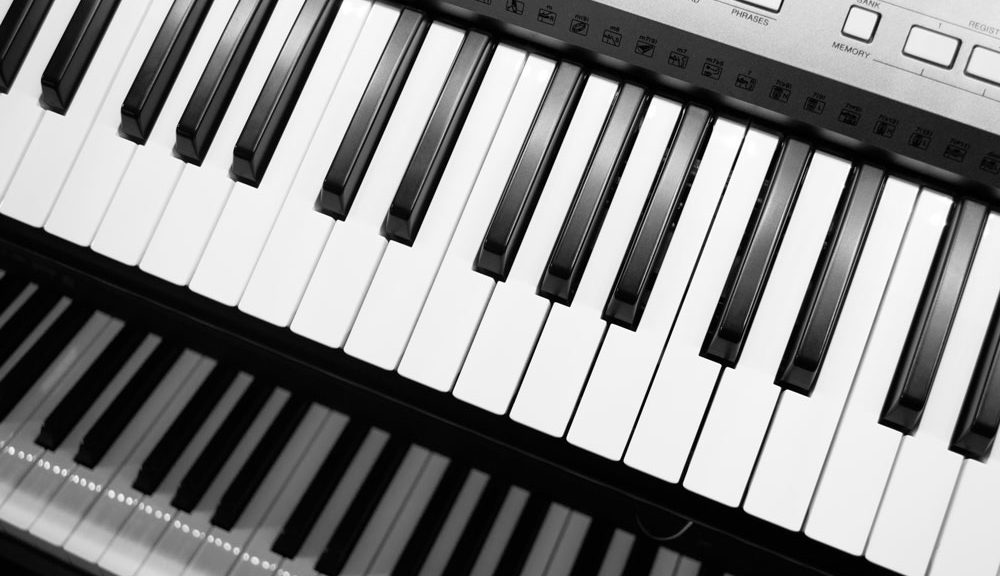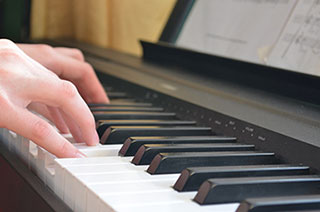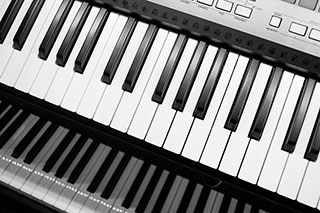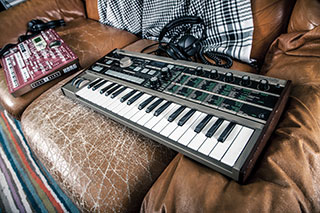
6 Tips for Keyboard Shopping
Starting with a keyboard is an affordable choice for many students who are new to piano lessons. If a piano is not an option due to budget, apartment living, an upcoming move – or you’re just not sure how much you will enjoy lessons – learning on a keyboard is perfectly acceptable! There are certainly differences between a piano and a keyboard. However, if you understand these differences you can be confident in your decision.
Consider the following points when shopping for a keyboard as a new piano student.
Points to Consider
1. Size – How Many Keys
The first point to consider is the number of keys. Generally speaking, the smaller the keyboard, the less expensive it will be. However, if you start small, you’re eventually going to run out of room to play. You’ll someday find your pinkie finger will be tapping plastic at the end of the keyboard. That time may come quicker than you realize, as you begin with songs based around middle C and move further and further to each end of the keyboard.
For reference, a piano has 88 keys. I suggest a keyboard with a minimum of four octaves – or a 54-key keyboard. If you go smaller, you’ll likely need an upgrade in another year or two. This may not be an effective use of funds. Of course, larger is best, as long as you still balance it with the next several points.
2. Action – How it “Plays”

A real piano has weight and resistance to the keys. Ideally your keyboard will have similar “weighted” action, which simulates a piano. Practice on a piano or weighted keyboard is necessary to build the strength and technique to play expressively.
Unweighted keyboards are typically less expensive, as the “weighted” feature is more mechanically complex in construction of the keyboard. However, a weighted keyboard is preferred for learning piano. Playing a weighted keyboard is generally more usually more satisfying for the pianist to play because of the tactile sensation and response of the keys. Also, since it simulates the action of a piano the student will be able to work on strength and technique. While the weighted keyboard is more expensive, it is a very valuable feature.
An unweighted keyboard may also be more difficult to play. This is due to the lack of fluidity and responsiveness of the keys. However, if an unweighted keyboard is all the budget can afford, consider an upgrade in the near future. Start with a cheaper unweighted keyboard so you can learn to read music, then upgrade after you’re sure you like piano lessons.
If you are shopping for a weighted keyboard, be aware that they all feel a little different – just like pianos. Be sure to play a few and see what you like!
3. Creation of Sound – Touch-Sensitive or Not?
Just as the action of a piano can be recreated in some keyboards, so can the variation in volume. The keys of a piano control hammers that strike the strings. A more firm strike will be louder, while a delicate touch will result in a softer volume.
Touch-sensitive keyboards will mimic this mechanical production of sound. Non-touch sensitive keyboards will play all keys at the same volume regardless of how they are played. A touch-sensitive keyboard is preferred so you can play with dynamics. The term “dynamics” refers to how loudly or softly the music is played.

The more touch-sensitive the keyboard, the more expressively you can play. Playing expressively, or with dynamics, is just as important as the notes you are playing. This is similar to the volume of our voices or our body language in our everyday communication. Therefore, as a piano student, it is very important that your keyboard has this feature.
Be aware that different keyboards have different touch sensitivities, so be sure to play as many as you can to judge its capabilities and limitations.
4. Sound Quality – How does the “Piano” Sound?
Piano
It is very important that you enjoy the sound of your keyboard! Some keyboards have one generic “piano” sound while others have several. Some play recordings of an actual Steinway while others just have a great sounding piano sound.
Every manufacturer has a different set of sounds and the quality varies. Even different keyboards within the same brand vary. If you can’t afford a high end keyboard but you want a beautiful piano sound, find the high end keyboards you like and research lower end models that use the same sounds.
Other Sounds
Keyboards and digital pianos usually make other sounds, as well. If you are buying a keyboard because you also want to be able to “play” a saxaphone, a trumpet, drums, and weird synthesizer sounds, make sure you try them out and see if you like them!
4. Additional Features – MIDI
A MIDI keyboard is a great tool for both songwriters and students. This function allows your keyboard to connect to your computer, so you can record what you’ve played and listen back to it, create sheet music from the recording, and a variety of other tasks depending on the software you use.
For songwriters, this feature is very useful for creating fully orchestrated compositions. The sheet music can be used to play alone or with a band. Again, depending on the software you use and how deep into songwriting and production you go, you can do it all.

For students, MIDI can be a helpful learning tool. Note recognition can be reinforced by playing notes and watching as the computer recognizes them on places them on a staff in real time. The metronome within the software could be used to help your practice. You can record your performance and listen back to it to critique it. Depending on what you have available, I can include these tools in your lessons and assignments to help you improve.
Another option is a workstations, though I do not recommend them for students. A workstation can be used with or without a computer. However, they are quite expensive due to the fact that they don’t need a computer for many functions. The workstation features can be a bit cumbersome with a learning curve of their own and are primarily for stage performance and songwriters. As a beginning student, there is no immediate need for a workstation. However, if you only want to buy one keyboard to last many years and you want to someday write songs, a workstation may be for you!
5. Portability – How Will You Use the Keyboard?
Do you want a portable keyboard or something with more of a furniture-like presence? If you are not looking for portability, consider a digital piano with a solid frame stand. Or, if you’d like the option of portability and a nice presence in your home, some keyboards and digital pianos can be removed from their frame at home and taken on the road with a portable stand.
Before buying, consider your future plans for the instrument and whether or not you may be ready for a piano in the future.
As Always, Focus on Enjoyment

Just as I recommend when deciding between a piano or keyboard, focus on how much you enjoy playing the instrument. If playing is not enjoyable or you do not like the way the instrument sounds, you will not be engaged in lessons. You may never truly give yourself a chance to fall in love with the instrument! Consider the points above and set a budget that is right for you – and buy what makes you happy within that budget.
Please note that if you are considering taking lessons with me, let me know what you are considering and I am happy to help advise. I want you to be happy playing your instrument!
